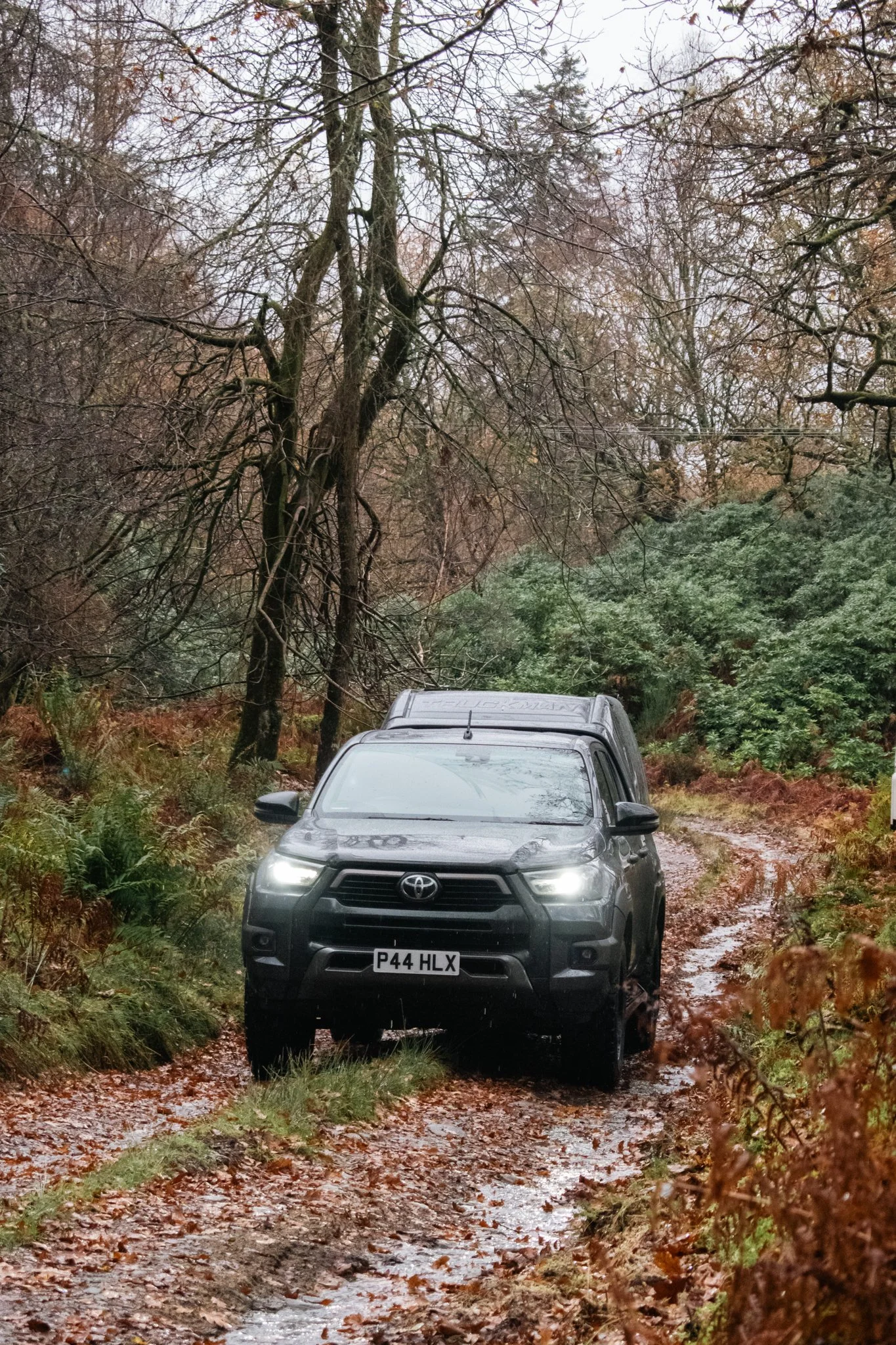
OFF ROAD 4x4 TRAINING
STANDARD LEVEL
All BORDA (British Off Road Driving Association) accredited off road 4x4 training provides practical instruction in safe off-road driving techniques, 4x4 systems, and risk reduction — ensuring drivers stay safe, employers stay compliant and vehicle damage is avoided.
The Standard Level BORDA Off Road 4x4 course is our most popular option and the course we recommend for most 4x4 vehicle operators - designed for operators who use 4x4 vehicles in moderate off road conditions, including terrain with reduced traction:
Unmaintained hill & forest tracks
Quarries, remote construction & work sites
Moorland & upland, common across utilities & renewables
Coastal, beach & inland waterways
Moderate inclines & declines, up to 25 degrees
Terrain with mixed traction such as grass, sand, gravel & shingle
Suitable for all commercial operators, with training delivered to British Off Road Driving Association (BORDA) standards as recommended by the Health & Safety Executive (HSE).

What the course covers
Operator safety and environmental considerations
4x4 vehicle controls and transmission types
Pre-use and post-use checks
Starting and stopping with reduced traction
Emergency stop procedures
Moderate ascents and descents
Route planning and risk assessment for varied terrain
TRAINING OUTCOMES
By the end of this course, participants will:
Understand safety and legal requirements for 4x4 use
Carry out daily checks and confirm vehicles are safe to operate
Understand drive types, gearboxes, differentials, and driver aids — applying the right systems when required
Plan off-road routes that account for terrain & vehicle limitations
Operate 4x4s safely and confidently in varied terrain, forwards and in reverse, including with limited traction
Apply correct techniques for ascents, descents, ruts, ditches, side slopes, and obstacles
Demonstrate self-recovery techniques (e.g. after a stall or loss of traction)
Reduce wear & tear on vehicles, avoid damage & minimise downtime
Delivery
Training can be delivered at your site (if suitable) or at our dedicated training centre in West Dunbartonshire.
VEHICLES & EQUIPMENT
We recommend trainees use the 4x4 vehicle they normally operate at work to ensure best understanding of their vehicle’s systems and capability, if this isn’t possible then courses can also be undertaken in one of our Land Rover Defender or Toyota Hilux 4x4 vehicles.
All trainees should come dressed for the outdoors, with warm and waterproof layers and sturdy footwear. All other equipment is provided.
DURATION: FULL DAY
TERRAIN: MODERATE
PRICE: FROM £579 + VAT
4x4 COURSE COMPARISON
BASIC LEVEL 4X4
DURATION: 1/2 Day
COST: FROM £499 + VAT
TERRAIN: MILD
Maintained forrest tracks
Unpaved worksites and access roads
Agricultural land and private estates
Mild slopes up to 15 degrees
Terrain with reasonable traction, such as gravel & rock
STANDARD LEVEL 4X4
DURATION: FULL Day
COST: FROM £579 + VAT
TERRAIN: MODERATE
Unmaintained hill and forest tracks
Quarries, remote construction & work sites
Moorland & upland, common across utilities & renewables
Costal, beach & inland waterways
Moderate slopes up to 25 degrees
Terrain with mixed traction such as grass, sand, gravel or shingle
higher level 4x4
DURATION: 2 DAYS
COST: FROM £999 + VAT
TERRAIN: CHALLENGING
Steep, technical, mountainous terrain
Soft or boggy sites, such as wetland
Steep inclines and declines above 25 degrees
Terrain with limited traction such as sand, mud, snow & ice
Operating with loads, trailers or during darkness
Conditions beyond the vehicles limits, which must be avoided
Situations where self-recovery may be required







